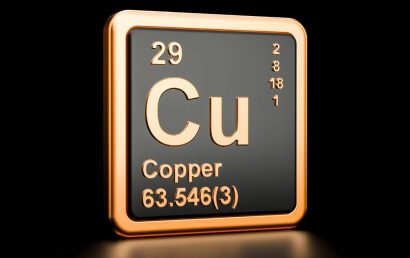How Are Non-Conductive Coatings Used In EV Manufacturing
The rise of electric vehicles (EVs) has led to advancements in automotive manufacturing. A key development is the use of non-conductive coatings in EV production. These coatings protect electric components by preventing electrical interference, corrosion, and environmental damage, contributing to their safety and efficiency.
What Are Non-Conductive Coatings?
Nonconductive coatings are materials applied to components to prevent the flow of electricity. These coatings are essential in applications where electrical insulation is needed, such as in electric vehicles. They form a protective barrier that isolates components, preventing unintended electrical contact or arcing, which can be dangerous and damaging to both the vehicle and its occupants.
Safeguarding Critical EV Components with Non-Conductive Coating
High-voltage batteries, motors, and various electronic systems power electric vehicles. Nonconductive coatings protect these sensitive components from electrical interference and environmental stressors such as moisture, salt, and extreme temperatures.
- Battery Insulation: EV batteries need insulation to prevent short circuits and electrical discharges. Nonconductive coatings provide this protection, helping the batteries function safely and efficiently over time.
- Motor Protection: Motors in electric vehicles generate significant amounts of heat and are often exposed to dust and other contaminants. Coatings not only provide electrical insulation but also help with thermal regulation, protecting motors from overheating and external damage.
Enhancing Durability and Longevity
Beyond electrical insulation, nonconductive coatings offer robust protection against corrosion. Corrosion is a common issue in vehicles, especially in regions with harsh weather or where salt is used to manage icy roads. By applying these coatings to metal parts, manufacturers can prevent oxidation and extend the lifespan of critical EV components.
For example, electric connectors and wiring are susceptible to moisture, which can lead to corrosion over time. Nonconductive coatings shield these elements from moisture, enhancing durability and maintaining vehicle performance.
Enhancing Efficiency with Non-Conductive Coating for Weight Reduction
One of the primary goals in EV manufacturing is to reduce the overall weight of the vehicle, as this directly impacts efficiency and range. Nonconductive coatings are typically lightweight and can replace heavier materials while providing equal or better protection. This weight reduction contributes to better energy efficiency and extended battery life, both essential factors in the design of electric vehicles.
Ensuring Safety and Reliability
Safety is a priority in the automotive industry, particularly with high-voltage systems. Nonconductive coatings help prevent electrical shorts, arc flashes, and fires, making them vital to electric vehicle design. These coatings also provide flame-retardant properties, protecting critical components from high temperatures or electrical malfunctions.
Maximizing EV Safety and Efficiency
Our nonconductive coatings are tailored for high-performance applications, offering electrical insulation, corrosion protection, and enhanced durability. We understand the unique challenges of EV manufacturing and work closely with our clients to deliver the most effective coatings for their specific requirements.
Our team is ready to assist with coating selection and application, ensuring your components remain safe, reliable, and efficient. Reach out today to learn how our nonconductive coatings can support your electric vehicle manufacturing process.



